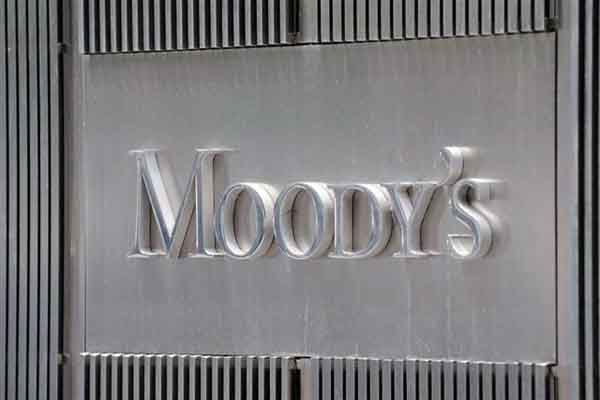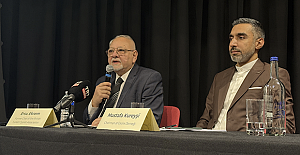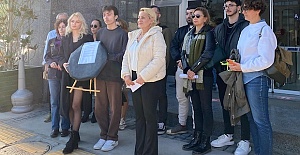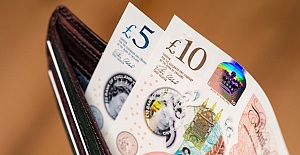Moody's showed the reason of upgrading Turkey's rating as "recent and expected future improvements in key economic and public finance metrics." Moody's also said that "Progress on structural and institutional reforms that Moody's expects will reduce existing vulnerabilities to shocks to international capital flows over time" for the second key driver for the rating action. "Moody's decision to assign a stable outlook on Turkey's ratings reflects the rating agency's expectation of continued prudence in the management of public finances and sustained momentum behind current structural and institutional reforms" was said in the statement.
Turkish Deputy Prime Minister Ali Babacan said the country's rating was upgraded to the level of investment by Moody's after Fitch.
"This decision is correct as well as a belated. The decision has closed up the market indicators and the credit rating a bit more" said Babacan.
Turkish Economy Minister Zafer Caglayan said, "We expect greater investments. The Central Bank should be prepared against the pressures it (the decision) will have on the Turkish lira."
Turkish Finance Minister Mehmet Simsek said Moody's upgrading would increase the Treasury's and the companies' access to the international finance, reduce the burden of debt and help Turkey's long-term growth.
In a written statement, Simsek said "Turkey deserved the "investible level. This is a step that will accelerate the inflows of the long-term investment to the country."
"Accuracy of Turkey's post crisis policies"
Turkish Development Minister Cevdet Yilmaz said Moody's upgrade proved the accuracy of Turkey's post crisis policies and in fact the upgrade should have been much earlier.
Earning two investment-grade credit rating from two credit rating agencies has significant influence on international funds.
Yilmaz said, "with the upgrades, finance expenses for Turkey will be much lower. This type of financing will contribute to Turkey's 2023 vision in terms of development investment".
"Turkey crossed critical level of threshold"
Turkish Minister of Science, Industry and Technology Nihat Ergun said on Friday that now, Turkey was on a spring board over the recent Moody's upgrade of Turkey's rating to "investible level".
Minister Ergun assessed the recent positive developments over Turkey's earning its second investment-grade credit rating with an upgrade to Baa3 by Moody's Investors Service to Anadolu Agency and said even though there was a delayed upgrade, the development was very pleasing for the Turkish economy.
He added that with this upgrade, technical blocks in front of the international investment funds were lifted and a critical level of threshold was crossed over.
Ergun underlined that the government, since it came to rule, set up strong macroeconomic baselines.
He noted that Turkey was having high potential in the aspects of financial structure, labor market and political stability.
Minister Ergun stated that credit rating agencies were even late to see the country's situation.
Moody's decision to upgrade Turkey's sovereign rating to Baa3 is about the improvement in the countries' economic and fiscal metrics.
The upgrade of Turkey happened while Turkish Prime Minister Recep Tayyip Erdogan is visiting the United States for talks with US President Barack Obama and several other US officials.
Fitch Ratings lifted Turkey to investment-grade in November, while Standard & Poor's rates Turkey one notch below.
Since AK Party first came to power in 2002, Erdogan has transformed a crisis-prone economy with chronic inflation into Europe's fastest growing country, tripling per capita income, in stark contrast with neighbouring euro zone member Greece.
The largely Muslim country's success coincides with economic disarray in the European Union, which Turkey has long sought to join despite strong opposition from many in the bloc.
Turkey's two-year benchmark bond yield hit an all-time low of 4.61 percent, having already sunk some 20 basis points to 4.81 percent on Thursday after the central bank cut key interest rates by 50 basis points.
Yields were at more than 6 percent at the start of the year.
"(This) should attract longer term capital inflows into the economy and support growth. This is a very impressive achievement in turbulent global conditions," said Manik Narain, emerging markets strategist at UBS.
The lira was at 1.8360 against the dollar, having softened to 1.8300 on Thursday after the rate cut.
The main share index, which has surged 18 percent this year, was up 0.26 percent at 92,182.10 points, having touched a record intraday high in early trade. It easily outperformed a 0.3 percent fall in the main global emerging markets stock index.
The central bank cut rates to stimulate the economy, which has been faltering a bit, and to keep the lira from appreciating due to monetary easing by other central banks.
"The central bank may be prepared to ease policy even more freely if capital inflows pick up due to this move. We think they will be keen to protect the exchange rate from appreciation given rising current account vulnerabilities," UBS' Narain said.
Moody's said its one-notch upgrade was based on structural improvements in the economy and in public finances that will better insulate Turkey from external shocks.
Moody's said it expected Turkey's debt burden to decline in the coming years after falling 10 percentage points to a "manageable" 36 percent of GDP since the beginning of 2009.
It said Turkey's ability to finance its debt is supported by a relatively low and decreasing share of debt denominated in foreign currencies. It estimates foreign debt stock dropped to 27.4 percent at the end of 2012 from 46.3 percent in 2003.
Reforms that Moody's highlighted as giving Turkey a better footing for handling external shocks include new incentives to increase investment in personal pensions, boosting energy efficiency in a move to wean itself off of energy imports. Hydrocarbon imports are a major contributor to the current account deficit.
Moody's upgrades Turkey's rating to investment grade
Turkey earned its second investment-grade credit rating with an upgrade to Baa3 by Moody's Investors Service
17 Mayıs 2013 Cuma 12:05
reads.



 After Nesil Caliskan a by-election will be held in Jubilee ward in Enfield
After Nesil Caliskan a by-election will be held in Jubilee ward in Enfield Publishing the analysis, Labour’s Cllr Ergin Erbil said Everybody in Enfield deserves basic rights
Publishing the analysis, Labour’s Cllr Ergin Erbil said Everybody in Enfield deserves basic rights Gaza-Israel conflict Statement from Cllr Ergin Erbil, Leader of Enfield Council
Gaza-Israel conflict Statement from Cllr Ergin Erbil, Leader of Enfield Council Cllr Ergin Erbil was elected as the new Leader of Enfield Council
Cllr Ergin Erbil was elected as the new Leader of Enfield Council History of the Turkish Cypriot People symposium held in London
History of the Turkish Cypriot People symposium held in London Asia's most famous and powerful 100 women award given to WFPA President Naziya Bisenova
Asia's most famous and powerful 100 women award given to WFPA President Naziya Bisenova Death toll climbs to 5 as powerful Storm Bert batters Britain
Death toll climbs to 5 as powerful Storm Bert batters Britain Turkish students are unable to obtain visas from the Italian Consulates
Turkish students are unable to obtain visas from the Italian Consulates Footballers are celebrating after Enfield Council officially opened a pitch
Footballers are celebrating after Enfield Council officially opened a pitch  Pep Guardiola's Manchester City beaten by Juventus
Pep Guardiola's Manchester City beaten by Juventus Chelsea to meet Arsenal in Sunday's London derby
Chelsea to meet Arsenal in Sunday's London derby Fenerbahce vs Manchester United Predicted line-ups! Jose Mourinho faces former side
Fenerbahce vs Manchester United Predicted line-ups! Jose Mourinho faces former side UK economy had zero growth between July and September
UK economy had zero growth between July and September Shape the future of housing services with The Enfield 500
Shape the future of housing services with The Enfield 500 DOUBLE-CAB PICKUPS TO BE CLASSED AS CARS UNDER NEW HMRC POLICY
DOUBLE-CAB PICKUPS TO BE CLASSED AS CARS UNDER NEW HMRC POLICY Guide to Selling Hoodies with Imprinted Book Quotes
Guide to Selling Hoodies with Imprinted Book Quotes


















